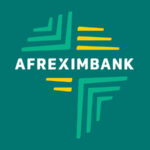The Nigerian Exchange was Africa’s best-performing stock market in the first half of 2024, with a 33.81% increase in its All-Share Index.
The first half of 2024 was a bullish moment for capital markets worldwide, with an overall rising trend. African stock markets were not left behind, with every stock exchange in Africa experiencing growth in H1 2024, according to Nairametrics.
Taking global examples, the NASDAQ Composite Index rose 18.13% in H1 2024, while the NYSE Composite Index rose 6.96%.
The London Stock Exchange grew by 5.20% during the same period.
Even the Hong Kong stock market increased by 3.94%, despite the market’s overall downturn during the previous five years.
The capital market growth is connected to early-year indications of upcoming benchmark interest rate reduction, which boosted activity.
Below is the ten best-performing stock markets in Africa in the first half of 2024.
10. Casablanca Stock Exchange – +9.99%
The Moroccan All Share Index (MASI), which analyzes the performance of all businesses listed on the Casablanca Stock Exchange, finished the first half of 2024 up 9.99%. The index began 2024 at 12,092.88 points and ended at 13,301.37.
9. Namibian Stock Exchange – +10.06%
The Namibian Stock Exchange (NSX) gained 10.06% in the first half of 2024, with the All-Share Index closing at 1,797.67 from 1,633.33 at the start of the year.
The NSX is Africa’s second-largest exchange, with a market capitalization of approximately $110 billion. The largest firm listed on the NSX is Anglo-American Plc, a British mining conglomerate with a market capitalization of approximately $32.5 billion.
8. Tunis Stock Exchange – +11.15%
The Tunis Stock Exchange, known as the Bourse des Valeurs Mobilières de Tunis (BVMT), rose 11.15% in the first half of the year. Its index, TUNINDEX, increased from 8,750.59 at the start of the year to 9,726.08 by the end of the term.
7. The Egyptian Exchange – +11.54%
The Egyptian Exchange (EGX) is Egypt’s principal stock exchange, and the EGX 30 Index measures the market’s performance. The EGX 30 index tracks the performance of the 30 most capitalized stocks listed on the EGX.
In H1 2024, the EGX 30 gained 11.54%, as it started the year at 24,894.26 and ended the period at 27,766.27.
6. Dar es Salaam Stock Exchange – +15.32%
The Dares Salaam Stock Exchange (DSE) in Tanzania saw a 15.32% increase in the first half of 2024, with the index climbing from 1,750.63 at the start of the year to 2,018.78 at the end.
DSE has a market cap of about $6.4 billion, with Tanzania Breweries Limited being the most capitalized stock on the exchange.
5. Uganda Securities Exchange – +17.93%
The Uganda Securities Exchange (USE) had a 17.93% increase in H1 2024, with its All-Share Index finishing at 1,028.93, up from 872.5 at the start of the year.
4. Nairobi Securities Exchange – +18.87%
The Nairobi Securities Exchange (NSE) gained 18.87% in H1 2024, with the All-Share Index rising from 92.11 at the start of the year to 109.49 at the end.
Since 2022, the NSE has been on a downward trend, falling by 23.4% in 2022 and another 27.7% in 2023. In March 2024, the NSE All-Share Index reached its highest level since July 2023.
3. Ghana Stock Exchange – +22.34%
The Ghana Stock Exchange gained 22.34% in H1 2024, with its composite index completing the period at 3,829.61, up from 3,130.23 at the beginning of the year.
GSE has a market cap of $5.6 billion, with MTN Ghana being the largest company listed on the market.
2. Lusaka Stock Exchange – +28.13%
The Lusaka Stock Exchange (LuSE) gained 28.13% in H1 2024, with its All-Share Index closing the period at 13,873.75, from 10,828.
The Lusaka Stock Exchange has a market capitalization of $4.7 billion, with Shoprite Holdings making up almost half of the exchange’s total market capitalization.
1. Nigerian Exchange – +33.81%
The Nigerian Exchange was one of the world’s fastest-growing exchanges in H1 2024, increasing by 33.81% over that time. The NGX All-Share Index concluded at 100,057.49 from 74,773.77 at the start of the year.
In constant currency terms, the NGX’s market capitalization climbed by N15.7 trillion throughout the period, from N40.9 trillion to N56.6 trillion. However, in USD terms, the market capitalization fell from $45.6 billion to $37.7 billion.











